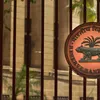MSME Minister Narayan Tatu Rane lists 5 govt initiatives to support MSMEs amidst COVID-19
MSME Minister Narayan Tatu Rane listed down various initiatives taken by the government to support MSMEs in a written reply to the Rajya Sabha.
MSME Minister Narayan Tatu Rane — who recently succeeded Nitin Gadkari — has listed several government initiatives to encourage Indian micro, small, and medium enterprises (MSMEs).
In a written reply to Rajya Sabha on July 19, Rane outlined the various schemes, initiatives, and relief packages offered by the government to support MSMEs and help survive the COVID-19 pandemic.

Loans disbursal under ECLGS scheme
Rane mentioned that an amount of Rs 2.73 lakh crore has been sanctioned under the ECLGS scheme — designed to support existing borrowers to meet the liquidity crisis amidst COVID-19 — as of July 2, 2021, of which an amount of Rs 2.14 lakh crore has been disbursed.
“The Ministry of MSME has launched Credit Guarantee Scheme for Subordinate Debt (CGSSD) to extend financial assistance to stressed MSMEs, including NPA accounts. The credit needs of the first time bowers belonging to the micro and small enterprises are catered to by the Credit Guarantee Scheme for Micro and Small Enterprises.”
He added that since ECLGS is a demand-driven scheme, sanctions and disbursements are made by lending institutions based on an assessment of borrower’s requirements and eligibility.
Loans under the CGS scheme
Under the Credit Guarantee Scheme implemented by Credit Guarantee Fund Trust for Micro and Small Enterprises (CGTMSE), where all new and old MSMEs are eligible to be covered, Rane said that as of June 30, 2021, CGTMSE has approved more than 53 lakh guarantees cumulatively for an amount of Rs 2,72,007 crore.
“During FY 2020-21, CGTMSE has approved 22,021 guarantee applications, amounting to Rs 1,408 crore for the State of Telangana.”
He added that the government has announced a relief package of Rs 1.1 lakh crore loan guarantee scheme for COVID-19 affected sectors, additional Rs 1.5 lakh crore for ECLGS and CGS to facilitate loans to about 25 lakh small borrowers through microfinance institutions, etc.
New MSME units
He also highlighted the change in the process of registration of MSMEs, where the government replaced the Udyog Aadhaar Memorandum (UAM) with Udyam Registration (UR) in July 2020.
“The registration is free of cost, transparent, online, hassle-free, and is based on self-declaration. It does not require any documents and has automatic integration with ITR and GSTIN. During the second wave of COVID-19 pandemic, MSMEs continued to register on the UR portal,” he mentioned.
The number of MSMEs registered on the Udyam Registration portal crossed the 30 lakh mark according to the MSME ministry. There are around 30.3 lakh MSMEs registered on the portal as of May 17.
Encouragement to MSMEs
The minister also listed several initiatives under the Aatmanirbhar Bharat Abhiyan initiative to support the MSME sector in India, especially amidst the pandemic.
"Schemes like Rs 20,000 crore subordinate debt for MSMEs, Rs 3 lakh crores collateral-free automatic loans for business, Rs 50,000 crore equity infusion through MSME Fund of Funds, newly revised criteria for the classification of MSMEs, new registration of MSMEs through 'Udyam Registration' for ease of doing business, and no global tenders for procurement up to Rs 200 crores have been implemented that will help MSME,” Rane elaborated.
He added that an online portal “Champions” was launched in June 2020 by Prime Minister Narendra Modi, which covers many aspects of e-governance, including grievance redressal and handholding of MSMEs. Through the portal, a total of 35,361 grievances have been redressed till July 12, 2021.
Expansion and increase capacity of the sector
Rane also wrote to Rajya Sabha that Fund of Funds with the nomenclature Self Reliant India (SRI) Fund to infuse Rs 50,000 crore as equity funding in those MSMEs which have the potential and viability to grow and become large units.
Under this scheme total size of the fund of Rs 50,000 crore has a provision of Rs 10,000 crore from the government and Rs 40,000 crore leverage through private equity and venture capital funds.
He also mentioned that studies have been conducted by National Small Industries Corporation (NSIC) and Khadi and Village Industries Commission (KVIC) to assess the impact of the COVID-19 pandemic on MSMEs, including units set up under Prime Minister’s Employment Generation Programme (PMEGP).
The main findings of the online study were identified as liquidity (55 percent units), fresh orders (17 percent units), labour (9 percent units), logistics (12 percent units), and availability of raw material (8 percent units).
Edited by Suman Singh










